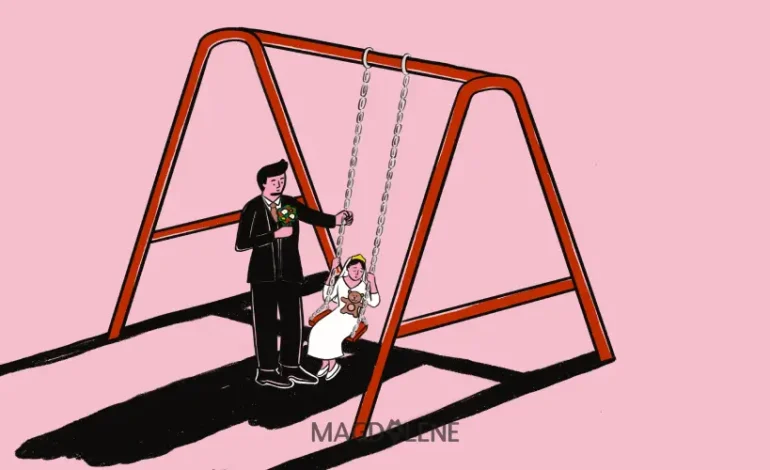Married But Free: How to Do It?

Recently a male friend who hadn’t been in touch for a while greeted me on Facebook. “Are you still living in Melbourne?” he asked.
I get so bored and annoyed with questions like that, I made an announcement on Facebook: “Friends, I separated from my ex in 2012 and officially divorced in 2016. When I was still married I never lived in Melbourne anyway”.
In 2005 I got hitched to an Australian man based in Melbourne. From the beginning we agreed to stay in our respective countries because even before he married me, he came to Jakarta almost every month for his work anyway. But in the end the marriage failed, and we got divorced.
There are many assumptions related to marriage. For example, that the wife must use the husband’s surname.
When I married in 1974 with my first husband, Ami Priyono, I continued to use my own name. I had been known as a writer since before I got married, if suddenly my name became “Julia Priyono”, people would ask, “who’s that?” Ami himself didn’t mind, but his family wasn’t that pleased with my decision.
Secondly, the assumption that the wife must follow the husband – the reason why I was often asked if I still lived in Melbourne. At the time I was 51, I had my own home, I was independent, relatively well-established, and was work-based in Jakarta. Why move to Australia?
Ami died in June 2001. In 2004, at age 50, after being widowed for three years, I wrote a column entitled “Polygamy ala Feminist.”
I like younger men, at least 10 years younger. But usually, men aged around 40 are married. So it occurred to me, why not engage in a polygamous marriage? I didn’t really feel like having a full-time husband anyway, so in an Islamic context, wouldn’t sharing him be the ”ideal” solution?
Actually I wrote the column half seriously, you could say satirically, because I was tired of having to answer to the question, “when will you get married again?”.
That’s another assumption: that women always need a companion. Having a boyfriend could be fun, but having a husband can be tiring! Men tend to need to be taken care of. When a man is divorced or widowed, the question that invariably arises is, “Who will take care of him?” Are men children who always need to be taken care of, and is a wife actually a maid with a more “honorable” and official position?
Recently I met “Tita”, an old friend. When I first met her 25 years ago, she was a 33-year-old divorcee. Her story is inspiring. About ten years ago, she began a different relationship pattern with a widower.
“After failing once, I wasn’t too sure about conventional forms of marriage,” she said. “I didn’t want to be a ‘wife’, I just want to be a friend.”
In the West, people would just date. But because both Tita and the widower are committed Muslims and did not want to commit adultery, they married in an Islamic ceremony. “We made a commitment to share some space and time to be together, to support, strengthen and give to each other when needed.” They have no obligations to one another, nor do they pin any hopes on each other.
“We are both busy, we have our own lives, he is in his house, I am in mine, and we communicate virtually. We have several places where we meet and spend time together. Sometimes we travel out of town or abroad. Basically we just go with the flow,” said Tita.
This relationship has been going on for more than ten years. They evaluate it every five years. “So far it has been going well. We are getting older and are more mature, which also makes us more stable.”
Wow, that’s so cool! Perhaps it’s more do-able than the “feminist-style polygamy” and more realistic than “till death do us part” marriages. Is the pattern of relationship adopted by Tita only for older couples? Who knows, maybe some younger couples might also be interested to try it out?
Illustration by Karina Tungari






















